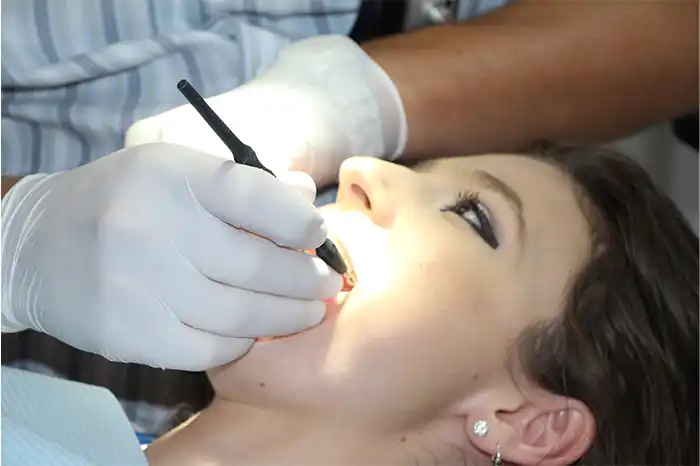In today’s world, a bright and healthy smile plays a crucial role in self-confidence and first impressions. However, many unwittingly engage in habits or neglect that can detract from their dental health.
8 Common Oral Hygiene Mistakes to Avoid for Healthy Teeth
Below, we explore common slip-ups and misconceptions that could be silently undermining the brilliance of your smile.
1. Impact of Sugary Drinks and Snacks
Sugary drinks and snacks are a significant contributor to tooth decay, which can seriously harm your dental health. The bacteria in your mouth feed on sugar, producing acid that wears down tooth enamel. Frequent consumption without proper dental hygiene can lead to cavities and other oral diseases.
While an occasional treat may be harmless, regular indulgence can have lasting effects. It is essential to monitor your intake and make healthier choices to preserve your smile. Incorporating more water and less sugary substances into your diet can mitigate these risks.
Many popular beverages, like sodas and sports drinks, can be deceptive in their sugar content. It’s easy to overlook the impact on dental health when these drinks are consumed in large quantities. Being aware of their contents and choosing alternatives can protect your teeth in the long run.
2. Role of Acidic Foods and Beverages

Acidic foods and beverages contribute to enamel erosion, which can leave teeth vulnerable to decay. Citrus fruits, tomatoes, and vinegar-based dressings are common in many diets and can be harmful if not balanced with proper oral care. Over time, enamel erosion can lead to heightened sensitivity and discoloration.
It’s important to enjoy these foods in moderation and rinse your mouth with water afterward. Combining them with alkaline foods, such as vegetables, can neutralize some of the acidic effects. Being mindful of the pH balance in your diet supports better dental health.
Dental professionals often advise waiting at least 30 minutes before brushing after consuming acidic foods. This helps avoid further enamel wear. By adopting these simple habits, you can protect your smile from the adverse effects of acid exposure.
3. Brushing Frequency and Technique
It’s recommended to brush your teeth twice a day for two minutes with fluoride toothpaste. Many people skimp on brushing time or apply too much pressure, which can lead to gum damage and tooth sensitivity. Proper brushing technique is just as important as frequency.
Using a soft-bristled toothbrush and gentle circular motions helps to clean effectively without harming your gums. Following these steps can improve your oral health and prevent gum recession. Educating yourself about the right way to brush can make a significant difference.
Understanding the importance of brushing after meals and before sleep can also enhance dental hygiene. Nighttime brushing is particularly crucial, as it helps remove food particles accumulated during the day. Focusing on technique provides a more thorough clean, contributing to a healthier smile.
4. Overusing Whitening Products
Many people turn to whitening products and procedures to enhance their smiles. However, overuse can lead to weakened enamel and increased sensitivity. It’s crucial to follow the instructions carefully and consult a dentist before beginning any whitening regimen.
Excessive whitening can disrupt the natural balance of your mouth, leading to irritation and compromised dental health. Dentists can recommend safer alternatives tailored to your specific needs. Monitoring these treatments can prevent potential harm to your teeth.
In the pursuit of a whiter smile, it’s important not to overlook overall oral health. Balance is key, and prioritizing natural whiteners, like coconut oil, baking soda or hydrogen peroxide under professional guidance, can be beneficial. Ensuring you maintain proper oral hygiene should precede any cosmetic enhancements.
5. Necessity of Flossing and Using Mouthwash

Less than 14% of Americans floss daily, a habit essential for removing food particles and plaque from between teeth. Flossing and using mouthwash work together to reach areas that brushing alone cannot. Establishing a routine that incorporates these steps can significantly enhance dental health.
Mouthwash can be an essential tool in combating bad breath and reducing bacteria. It’s a simple addition that complements brushing and flossing, offering broader oral health benefits. Together, they form a comprehensive approach to maintaining a healthy smile.
Neglecting to floss can lead to gum disease and tooth decay over time. By taking a few minutes each day, you can prevent these dental issues. It’s a small effort with substantial long-term rewards for your oral hygiene.
6. The Effects of Tobacco Products on Dental Health
Tobacco products pose serious risks to dental health, contributing to gum disease, tooth decay, and oral cancer. Smoking can also stain teeth and lead to persistent bad breath. The use of tobacco products can slowly degrade the overall health of your smile.
Quitting tobacco not only improves oral health but also enhances overall physical well-being. There are numerous resources and support systems available to help with this transition. Reducing tobacco use is a significant step towards a healthier lifestyle and smile.
Awareness of the dental consequences of tobacco is crucial in making informed decisions about its use. In addition to professional cleanings and checkups, avoiding tobacco can extend the longevity of your dental health. Proactivity in this area can dramatically transform your oral hygiene.
7. Alcohol Consumption and Its Impact on Oral Hygiene
Alcohol consumption can negatively affect oral hygiene by drying out the mouth and reducing saliva production. Saliva is essential for neutralizing acids and protecting teeth from decay. When saliva production decreases, the risk of cavities and gum disease increases.
Moderation is key, as excessive drinking can exacerbate these dental problems. Choosing lighter, lower-alcohol beverages can help mitigate some of these effects. Maintaining hydration with water can also counteract the drying nature of alcohol.
Alcohol can also irritate the gums and soft tissues of the mouth. Being informed about these impacts can lead to healthier decisions regarding consumption. By balancing alcohol intake with adequate oral care, you can protect your dental health.
8. The Benefits of Routine Cleanings and Examinations

Visiting the dentist at least once per year can help detect and treat gum disease. Regular cleanings remove plaque and tartar that daily brushing and flossing can’t reach. These appointments provide valuable opportunities to catch potential problems early.
Routine examinations are essential in preserving overall oral health and preventing more severe conditions. Dentists can offer personalized advice and treatment tailored to your dental needs. Establishing a relationship with your dentist can lead to better care outcomes.
Preventative care through regular dental visits is an investment in the health of your smile. It reduces the likelihood of extensive, costly procedures in the future. Prioritizing these visits supports a proactive approach to maintaining dental hygiene.
Final Words
Maintaining a healthy smile goes beyond regular brushing; it involves a comprehensive approach to dental care that considers diet, lifestyle, and the products you use. By becoming aware of these potential pitfalls, you can take proactive steps to safeguard your smile for years to come. A conscious effort in all these areas results in not only a more radiant smile but also overall improved health.





